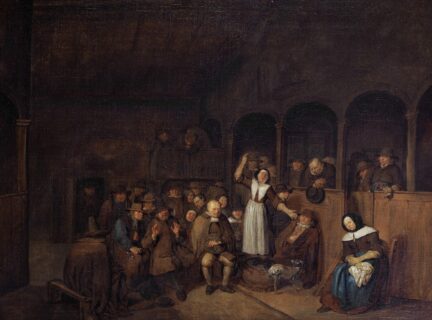
1688: The Germantown Quakers Protest Slavery
While the seventeenth century is in the news again this week thanks to the 1619 project, we thought we would draw attention to the efforts of some early American Quakers to outlaw slaveholding among members of their community.
In 1683, Francis Daniel Pastorius, a highly educated lawyer from what is now Germany, led a group of formerly Lutheran pietists to settle in the newly formed Pennsylvania colony. The new settlement would (appropriately enough) be called Germantown, and Pastorius served as its de facto mayor for the first decade and a half.
During this period, Pastorius and several others of the settlers became concerned about the enslavement of Africans that they saw in their new home: about half of the British Quakers in the Philadelphia and Germantown area owned slaves. Troubled by what he saw as a practice “irreconcilable with the precepts of the Christian religion,” Pastorius drafted a petition, signed by himself and three like-minded citizens, to urge the local Friends meeting to prohibit slave holding among members.
In the petition, the quartet laid out their argument on the foundation that slaveholding violated the golden rule, the Biblical teaching to ‘love one’s neighbor as oneself.’
Now, tho’ they are black, we can not conceive there is more liberty to have them slaves, as it is to have other white ones. There is a saying that we shall do to all men like as we will be done ourselves; making no difference of what generation, descent or color they are. And those who steal or rob men, and those who buy or purchase them, are they not all alike? Here is liberty of conscience which is right and reasonable; here ought to be liberty of the body, except of evil-doers, which is another case. But to bring men hither, or to rob and sell them against their will, we stand against.
Pastorius and his compatriots were unsuccessful in their petition: although the petition was discussed at the highest administrative levels of the Quaker church, no action was taken at any level. Yet the petition raised timeless arguments against the practice of slaveholding which would be taken up by others in the following two centuries.
Read more about Pastorius and the settlement of German town or the full text of the 1688 petition to end slavery on our sister site, Religion In America.



